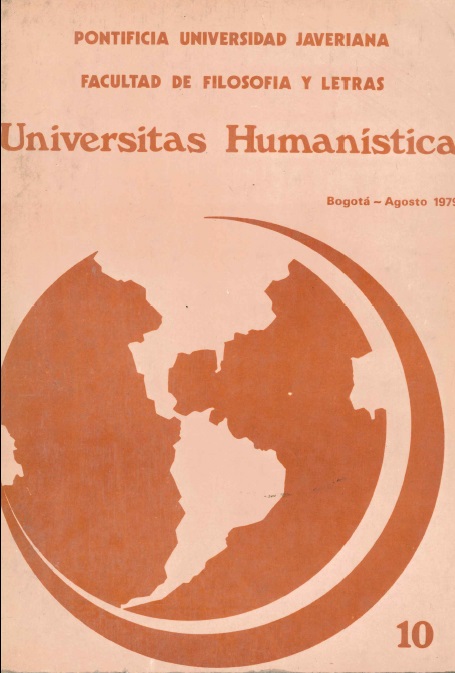Abstract
El resguardo durante la epoca colonial
La institución jurídica y agraria del resguardo es de origen colonial; fue adoptada por la corona española a fines del siglo XVI como medida protectora de los indígenas, después que la encomienda había dejado su secuela de merma demográfica y explotación inmisericorde de las poblaciones aborígenes. Claro que por otra parte el resguardo perseguía la facilidad de recoger el tributo al tener a los indios concentrados y separados de la población española y mestiza. Pero con todo y eso, el resguardo demoró la desaparición biológica y cultural de muchas comunidades amerindias, aunque hubiera sido inspirado por una intención paternalista. Eso no importa.

This journal provides immediate open access to its content on the principle that making research freely available to the public, encourages greater global exchange of knowledge.
The journal Universitas Humanística is registered under a Creative Commons Attribution 4.0 International Public License. Thus, this work may be reproduced, distributed, and publicly shared in digital format, as long as the names of the authors and Pontificia Universidad Javeriana are acknowledged. Others are allowed to quote, adapt, transform, auto-archive, republish, and create based on this material, for any purpose (even commercial ones), provided the authorship is duly acknowledged, a link to the original work is provided, and it is specified if changes have been made. Pontificia Universidad Javeriana does not hold the rights of published works and the authors are solely responsible for the contents of their works; they keep the moral, intellectual, privacy, and publicity rights.
Approving the intervention of the work (review, copy-editing, translation, layout) and the following outreach, are granted through an use license and not through an assignment of rights. This means the journal and Pontificia Universidad Javeriana cannot be held responsible for any ethical malpractice by the authors. As a consequence of the protection granted by the use license, the journal is not required to publish recantations or modify information already published, unless the errata stems from the editorial management process. Publishing contents in this journal does not generate royalties for contributors.


